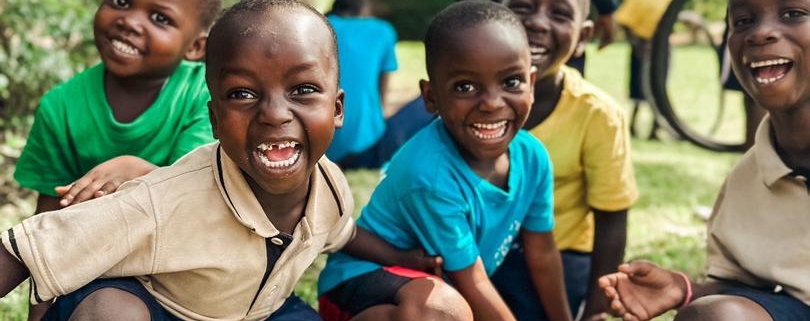In Uganda, a country rich in diversity and culture, children and young people face numerous threats to their mental health. Challenges such as poverty, family instability, chronic health problems, and exposure to domestic and political violence can severely impact young Ugandans’ well-being, and these problems have been compounded by school closures and other factors during the pandemic. Amid these adversities, getting a high-quality education offers not just job and life skills, but a sturdy foundation for mental health.
Here’s how — and how you can lend support.
A Safe Haven for Vulnerable Minds
- Stability and routine. For children and adolescents in Uganda, schools provide a structured environment that offers much-needed stability amidst chaos in other areas of their lives. Regular attendance and the rhythm of the school day can create a sense of normalcy and security, particularly during troubled times.
- Access to mental health resources. In 2022, initiatives in mental health policy in Uganda integrated mental health services for children into grade school services. Programs focusing on trauma-informed care and social-emotional learning are now more prevalent, offering students the tools they need to manage stress and emotional turmoil.
Emotional Intelligence Learning
- Social-emotional learning (SEL). Education systems incorporating SEL into their curriculum have made strides in promoting mental well-being. By learning to recognize and manage emotions, students can navigate social complexities with greater ease, reducing anxiety and depression rates.
- Building resilience. High-quality education equips students with problem-solving skills and resilience in the face of adversity. These skills are invaluable for mental health, allowing young Ugandans to cope with challenges and recover from setbacks more effectively.
A Supportive Community
- Peer support. Schools serve as a vital community for young individuals, where they can form meaningful relationships with peers. These connections provide emotional support and a sense of belonging, both of which are crucial factors in maintaining mental health.
- Mentorship and guidance. Teachers and school staff play significant roles as mentors, offering guidance and support to students. Their encouragement and understanding can make a profound difference in the lives of young Ugandans, helping them navigate personal and academic challenges.
Clearly, education in Uganda offers not just better socioeconomic prospects for the future, but essential mental health support for generations of young people. Yet education funding still falls woefully short of international standards, endangering these key benefits for students. You can help by supporting humanitarian educational nonprofits — and there have never been more ways to do so.
Give Ugandan Children a Brighter Outlook With Simone’s Kids
Simone’s Kids in Nakaseke, Uganda, provides high-quality Christian education and meets basic needs for children in order to help them break the cycle of poverty. Besides learning, these include a nurturing environment with access to clean water, safety measures, school sports, vocational training, and an on-site medical clinic. This not only prepares students for a brighter future, but works to strengthen their mental health in the process. Contact us to learn more!
You can maximize your impact with recurring donations to Simone’s Kids by joining The Village. The Village is a passionate group of donors committed to bettering the lives of children in Uganda by making monthly donations that help to provide better meals, more teachers, more activities, and even post-graduation services. You can even choose which level of education you’d most like to support (or support them all)! Give today!



Leave a Reply
Want to join the discussion?Feel free to contribute!